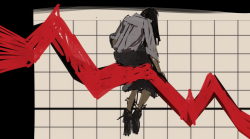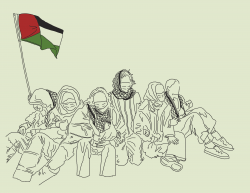Dear Georgetown Asian Americans,
We need to do better.
Where is the anger? Where is the activism? Where is the solidarity? These past few years— and this election especially—have shown us that, more than ever, America needs to hear our voice. And yet that voice is largely absent on our campus.
As a freshman, I remember joining several Asian cultural groups on campus in a search for community, and as an avenue to advocate for the Asian American Pacific Islander (AAPI) community. I wound up finding community, but as I began to get more involved, I realized that the advocacy aspect was severely lacking. In contrast, other student groups of color and their advocacy arms had a much more definitive voice on campus. Sure, there have been a few individual AAPI activists on campus who have done amazing work, and plenty of AAPIs in other organizations who have contributed to campus-wide movements. But there has not been a unified Asian American voice for the Asian American community at Georgetown. For a group that comprises almost one-fifth of Georgetown’s campus, we are surprisingly silent.
What’s going on?
Let’s first address the issue of solidarity—both within our communities and beyond. There is nothing at Georgetown connecting our myriad AAPI cultural groups. Yes, we all have representatives in the Students of Color Alliance, but I don’t remember the last time we’ve really worked with other cultural groups on campus to push for any kind of meaningful change directly affecting our community. And before you start thinking that the hot issues we talk about on campus aren’t especially relevant to the AAPI community, think again. There are Asian Leo’s workers who would benefit from the Asian American voice speaking out on behalf of worker’s rights. There exist plenty of undocumented students of Asian descent that Georgetown AAPI organizations could advocate for. Muslim Asian American students need our support against our nation’s growing trend of Islamophobia. We could learn much from a panel of Asian American political refugees who have successfully made a new life for themselves in this country.
And how about joining hands with our fellow people of color on campus? When the Black Lives Matter movement came to Georgetown, where was our community then? When stories of police brutality—both against Asian Americans and by Asian Americans—were breaking out around the nation, did we continually push back and create dialogue? Did any of us get involved in advocating for reparations for the ancestors of Georgetown’s legacy of slavery? Have we been supporting fellow minority students and engaging in coalition-building, or have we been unusually silent these past few years?
Second, are we too afraid to step out of our own apolitical shadow? Time and time again, I’ve heard from AAPI organizations that we cannot take a stance because those stances may not be representative of all Asian American students. But isn’t that precisely the point? As Asian Americans, we share an identity and a unique culture that only we can attest to. And part of sharing that identity is also sharing in common struggles. I’m not just talking about the model minority myth, affirmative action, and bamboo ceilings. Those issues have been worn out through and through because of their politically “safe” and uncontroversial nature.
What’s missing from the equation are actual stances—strong stances against racism, against oppressive behavior, and for equality. We were silent when the FOX News “Watter’s World” segment came out, even though it directly targeted, offended, and caused pain to many in our community. We didn’t say anything when Sikhs were being attacked and killed for their appearance and religion. When Trump came out and called Filipinos terrorists and animals, there was radio silence. And when Chinatown residents here in our own backyard, in Washington D.C., were being pushed out of their homes, nobody was there to speak up for them.
So, what can we do? We can start by solidifying our presence on campus and taking a stand, not only for our community but for all communities. We need to recognize that intersectionality is important, and that our community can only be stronger if we take active steps to empower those intersectionalities. We need to take a stand against injustices, both large and small, not just on principle but for the sake of those who cannot take a stand on their own. In these trying times, our community needs us more than ever.
Let’s not let them down.
Meredith is a senior in the School of Foreign Service.





